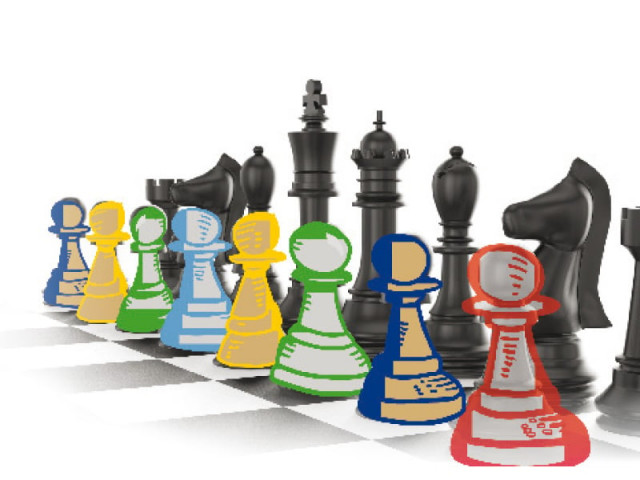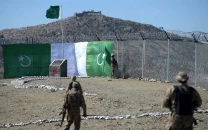Bad blood: In Sindh, some minors are involved in major tribal clashes
Children have been trained to believe that exacting revenge is something to be proud of.

Children have been trained to believe that exacting revenge is something to be proud of. DESIGN: KIRAN SHAHID
Shakoor Jagirani, 15, and two of his minor cousins were killed last year near Dhamrah in Larkana district by a few gunmen of their rival group.
The killings of these young boys spread panic, but the police dismissed it by claiming it was just a case of personal enmity. “Children are involved in tribal conflicts and criminal activities - it is tit for tat.” Their parents tried in vain to seek justice for their children but the police declared they were helpless. “The culprits have escaped into no-go areas,” was all they told the families.
Such cases are not only restricted to Larkana district but this trend has emerged in most tribal clashes in upper Sindh. Human rights organisations also pointed out that more children in Sindh are being used as tools.
“The elders use these minors to transport weapons from one place to another,” said Iqbal Detho, the national manager of the Society for the Protection of the Rights of the Child. “Children are commonly seen guarding the older men in the tribe. The elders sleep in bunkers while the minors keep a lookout in tensed neighbourhoods.” In fact, several bodies of children are found from bunkers after major clashes.

According to Hassan Nasir Mirbahar, a social scientist who recently conducted research on the impact of conflict in north Sindh, the elders train minors to fight and take revenge. “The dictatorial regime of General Ziaul Haq manipulated the social condition of Sindh, where tribal clashes escalated,” he said, blaming General Ziaul Haq for giving unconditional powers to feudal lords.
Mirbahar believed that the use of children is not a recent phenomenon. “This has been going on since 1980, but there have been no efforts to rectify the problem.”
Meanwhile, Pakistan Peoples Party MPA Munawar Ali Abbasi, who is also the head of his tribe, has a different story to share. “It is the landlords and waderas who have prevented tribal clashes from going out of hand,” he said. He claimed that influential men in these areas resolve the feuds, otherwise the situation would be much worse. “I accept that a few people are patronising tribal clashes, but please don’t blame all waderas.”
Nevertheless, the unaware victims of these feuds — the children — have been trained to believe that violence is necessary. Asad Kalhoro, 18, was in class nine when his father was killed by a rival family in Larkana. “My father was killed by the people of the Lashari tribe and everyone in our village started taunting my older brothers for not taking revenge,” Kalhoro told The Express Tribune at one of his hearings recently. “I felt embarrassed so I borrowed a TT pistol from my relative and killed one of the Lashari men at a sessions court in 2009.”
But, he wanted to kill more. “I would have killed everyone who was involved but the police caught me,” he said, adding that he will not regret his actions even if he is hanged. Nearly 40 people of the two families have so far been killed in this conflict that began around four years ago. The Human Rights Commission of Pakistan’s Shikarpur coordinator, Paryal Marri, said that nearly 1,050 people have been killed in tribal clashes in the past three years. Most of these cases were reported from Kashmore, where 226 people died. “Apart from schools closing down, even polio vaccinators are unable to go there,” he said.
The government insists, however, that everything is alright. The Sindh chief minister claimed in his four-year performance report that, “We have contained targeted killings in Karachi and there are no tribal clashes in rural Sindh.”
Published in The Express Tribune, February 4th, 2013.



















COMMENTS
Comments are moderated and generally will be posted if they are on-topic and not abusive.
For more information, please see our Comments FAQ